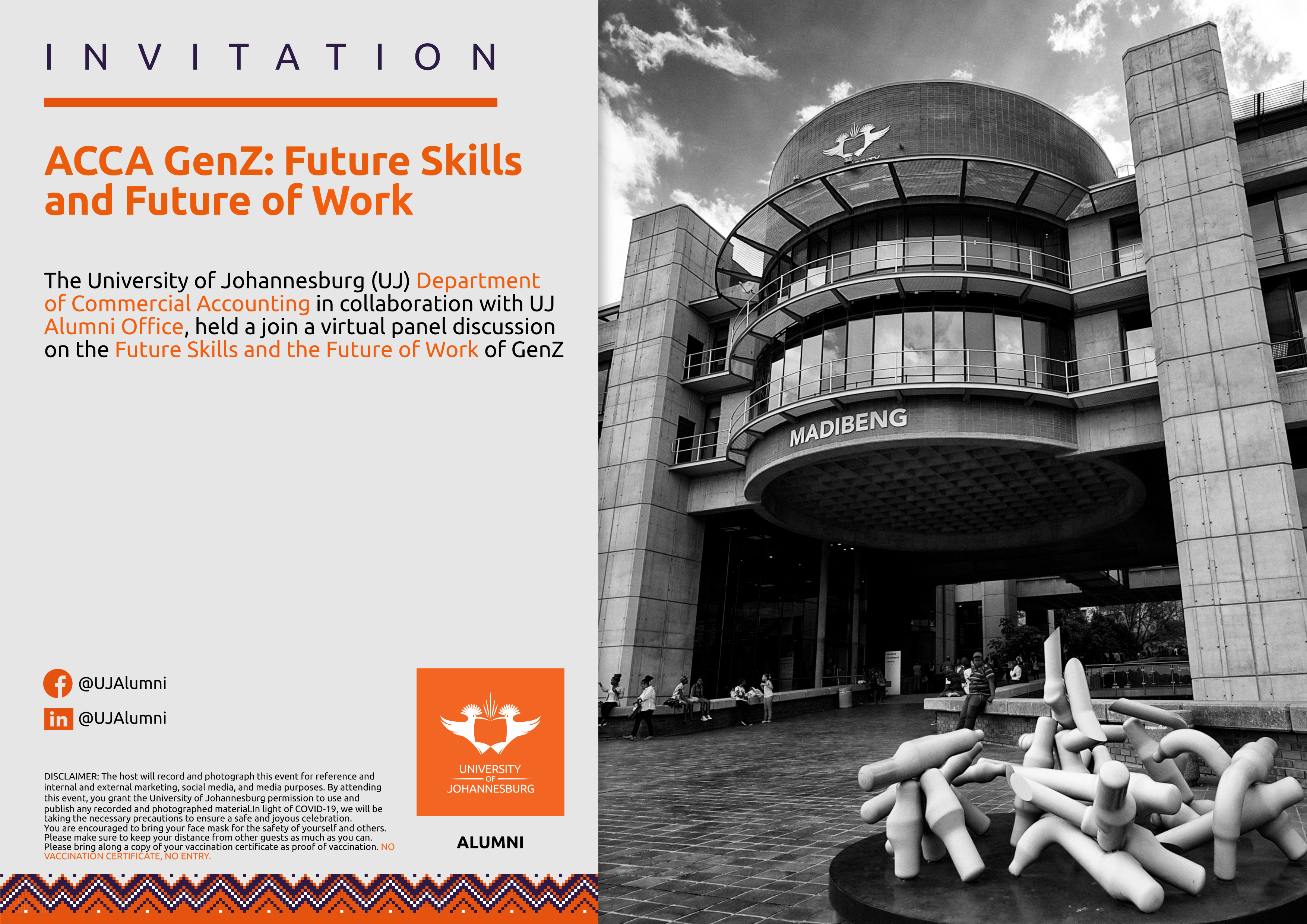ACCA GenZ: Future Skills and Future of Work
Technology drives Generation Z, a generation that wants to be heard
Accountancy job seekers who are in the Generation Z age bracket (born between 1995 and 2010) have some distinct advantages over previous generations, in that they are technologically highly advanced and are well adapted to the hybrid work model.
This was among the interesting observations made during the virtual panel discussion on the Future Skills and Future of Work of Generation Z, held on May 17 by UJ’s Department of Commercial Accounting (ACCA), in collaboration with UJ Alumni office.
The panel and speakers included ACCA deputy HoD, Husain Coovadia (convenor and programme director); vice-president of UJ Convocation, Zanele Modiba; head of ACCA: South Africa, Botswana & RMM, Portia Mkhabela; ACCA representative from the UK, Jamie Lyon; AdaptIT: CaseWare Africa, Simphiwe Zuma; Alumnus of UJ, Gift Somakwabe; and ACCA HoD, Lulama Boyce.
In his presentation Jamie Lyon referenced a survey that he conducted among Generation Z around their perceptions and attitudes to today’s workplace, and he said this age group would have an “indelible impact on the future of work and bring so many positives to the workplace”.
Lyon said the survey showed that employers in the accountancy sector saw their Generation Z employees as “super smart, entrepreneurial, natural disrupters (very innovative), digitally savvy, and have an expectation that their voice will be heard and that they have direct access to leaders (anti-hierarchical)”.
The results showed that what attracted Generation Z to companies was primarily the opportunity to continually acquire new capabilities (49%), followed closely by work-life balance (48%), then by high remuneration (39%) and international career opportunities (38%), Lyon said.
Zuma pointed out that, as a consequence, employers needed to remain abreast with technology that enabled a young worker’s career growth and also create environments that were not only about work but about work-life balance, as a Generation Z “brings their whole selves to work”.
Gift Somakwabe noted that this generation is “hard on itself” as a result of social media. “We tend to compare ourselves and feel we are not doing enough,” she said, adding that these young employees needed to discern between career and job.
“When we understand the difference, we gain more than a career, we start becoming leaders, mentors, businessmen and women of the future,” she said.
Disclaimer: The University of Johannesburg encourages academic debate and discussion that are conducted in a manner that upholds respectful interaction, safety of all involved, and freedom of association as enshrined in the law, the Constitution, and within the boundaries of the University policies. The views expressed during events are expressed in a personal capacity and do not necessarily reflect the views of the University of Johannesburg.

